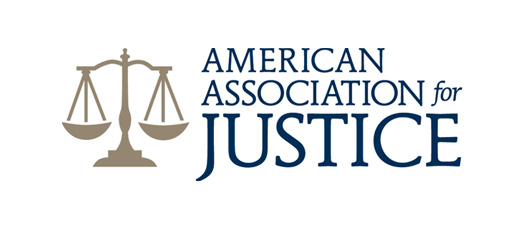Call us 24/7 for a Free Case Evaluation! 1-877-448-8585
Longshore & Harbor Worker’s Compensation Act

Longshore & Harbor Worker’s Compensation Act
What is the Longshore & Harbor Worker’s Compensation Act?
Longshore and Harbor Workers’ Compensation Act is designed to provide lost wage compensation as well as medical benefits to employees who suffered injuries while performing work either on navigable waters or surrounding areas, including but not limited to piers, terminals, docks and boat yards. This includes but is not limited to ship loaders, repairmen, longshoremen/women, stevedores, checkers, port workers and ship builders.
If you have been injured while performing work at a Florida Port, including but not limited to Port Canaveral (www.portcanaveral.com), Tampa Port (www.tampaport.com), Jacksonville Port (www.jaxport.com), Panama City Port (www.portpanamacityusa.com), West Palm Beach (www.portofpalmbeach.com), contact our office to ensure you receive the benefits you are entitled to by the Act.
Longshore & Harbor Compensation / Benefits
Wage Compensation:
- 1. Temporary Total Disability (TTD)
Under the Act, qualifying injured workers may be entitled to receive temporary total disability benefits if his or her injury prevents him or her from performing their regular job duties for a certain period of time. If he or she qualifies, the insurance carrier will pay him or her two thirds of his or her average weekly wages for the year before their accident, subject to minimum or maximum compensation rates. These rates are set yearly on or about October 1st.
- 2. Temporary Partial Disability (TPD)
Similarly, qualifying injured workers may be entitled to receive temporary partial disability benefits if their injury renders him/ her partially disabled to perform his/her regular duties for a certain period of time. Even if he/she returns to work on a part-time basis or earning lesser wages, he/she may still be entitled to receive weekly benefits equal to two thirds of the difference between the average weekly wage and the current earnings.
- 3. Permanent Total Disability (PTD)
If an injured worker is unable to perform any type of work as a result of his/her injury, he/she may be considered permanently and totally disabled. PTD entitles an injured worker to receive benefits including a cost of living adjustment up to 5% per year.
- 4. Permanent Partial Disability (PPD)
A partially disabled worker is one whose injury will prevent them, at least in part, from doing any kind of work for the indefinite future. Depending on the type of disability, a qualifying employee may be entitled to benefits based on a scheduled award or a loss of earning capacity. A scheduled award is based on the permanent loss or loss of use of parts of the body enumerated in the Act, disfigurement of head, neck, face or loss of bodily functions such as vision and hearing.
Scheduled Award Chart |
|
| Loss of: | Weeks of compensation |
| Arm | 312 |
| Hand | 244 |
| Thumb | 75 |
| Index Finger | 46 |
| Middle Finger | 30 |
| Ring Finger | 15 |
| Little Finger | 12 |
| Leg | 288 |
| Foot | 205 |
| Great Toe | 38 |
| Toe | 16 |
| Eye | 160 |
| Hearing loss of one ear | 52 |
| Hearing loss of both ears | 200 |
Medical benefits:
Under the Act, qualifying injured workers are entitled to medical treatment that is deemed medically reasonable and necessary and related to the injury along with supplies and travel costs for said services. Injured workers have the right to treat with a doctor of his or her choice.
If you’ve been injured and need to make a LHWCA claim, complete our on-line contact form, or call one of our Miami longshore worker injury attorneys today at 877-448-8585 or 305-448-8585 for a free, no obligation evaluation of your claim.
Countries
Iraq
Afghanistan
Japan
Qatar
Cuba
Guam
Kuwait
Diego Garcia
Haiti
Helping Contractors Injured in Iraq Seek DBA Compensation
Countless civilian contract personnel have been injured in Iraq due to the perils of the job and the environment in which it takes place. You may be wondering if yours qualifies as a DBA injury, and if so, how you might file a claim. Friedman, Rodman & Frank, P.A. helps clients in Iraq and overseas navigate DBA cases involving bases and other areas of operation.
Helping Civilian Workers Injured in Afghanistan Secure DBA Assistance
There are a number of circumstances that have caused civilian contract personnel to be injured in Afghanistan, but all of them can be similarly overwhelming when it comes to filing a DBA injury claim. Even though a contractor who is working on a military base overseas is entitled to certain protections granted by the Defense Base Act, advocating for yourself and ensuring these rights are honored can be a difficult task.
If You Were Injured in Japan You May Be Entitled to DBA Compensation
There are many longshore and harbor workers who have been injured in Japan in a variety of circumstances. A DBA injury is a serious matter, and any civilian contract personnel who have sustained such an accident should be afforded the medical care and resources they need. Too often, however, injured contractors are expected to file their claim and navigate the system on their own. This would be a difficult task to require of anybody, but it is even more stressful for a recently hurt person.
Helping Civilian Contract Personnel Injured in Qatar
Civilian contract personnel who are injured in Qatar are entitled to medical treatment and several other rights that are outlined in the Defense Base Act. Verifying that an incident qualifies as a DBA injury, however, requires that you file a claim and go through a review process. This is not ideal for any contractor who is on the job in Qatar, and it pushes many injured longshore and harbor workers to become frustrated with the process.
Helping Contractors Injured in Cuba File for DBA Coverage
Cuba tends to be perceived as a mysterious place, but it isn’t at all for the United States military. Armed forces have occupied Guantanamo Bay Naval Base since 2002, and many civilian contract personnel have been injured in Cuba since then. If you are one of these contractors, you might be wondering whether your affliction qualifies as a DBA injury. Overseas longshore harbor workers may be best served by contacting an attorney…
Helping Injured Workers in Guam Pursue DBA Benefits
Sustaining a DBA injury in Guam is traumatic in and of itself, but when civilian contract personnel must then go through the complex claim filing system, it can compound the stress and make anyone feel lost. Friedman, Rodman & Frank, P.A. is committed to serving contractor clients who have been injured in Guam by fighting for their rights, ensuring they receive proper medical care and providing assistance throughout the process of DBA claims.
Helping Injured Civilian Contractors Serving in Kuwait Receive DBA Care
Much of the United States’ presence in Kuwait is dedicated to maintaining air forces in the area. These places house countless military aircrafts, and as such, require contractor visits on a regular basis for maintenance, repair and cleaning. When jobs such as these result in a DBA injury, the next step may not always be clear. Being injured in Kuwait will bring up many questions for any repair person or harbor workers who are on the job overseas.
Helping Injured Civilian Workers Receive DBA Protection in Diego Garcia
Diego Garcia is one of the few international military bases in which civilian contract personnel outnumber actual service members. The high number of contract workers means that reports of being injured in Diego Garcia are not uncommon. Accidents that occur on the Diego Garcia military base should count as a DBA injury and therefore qualify longshore and harbor workers for the benefits outlined in the Defense Base Act.
Assisting Injured Contractors in Haiti With Filing for DBA Protection
Suffering a DBA injury in Haiti is a stressful situation, to say the least. It is bad enough to be hurt, but it is even worse when you are in a foreign country and must attempt to navigate the bureaucracy of filing a Defense Base Act claim. The latter of these issues, however, is one that can be easily remedied by enlisting help from a legal professional. Friedman, Rodman & Frank, P.A. can provide the legal representation…




